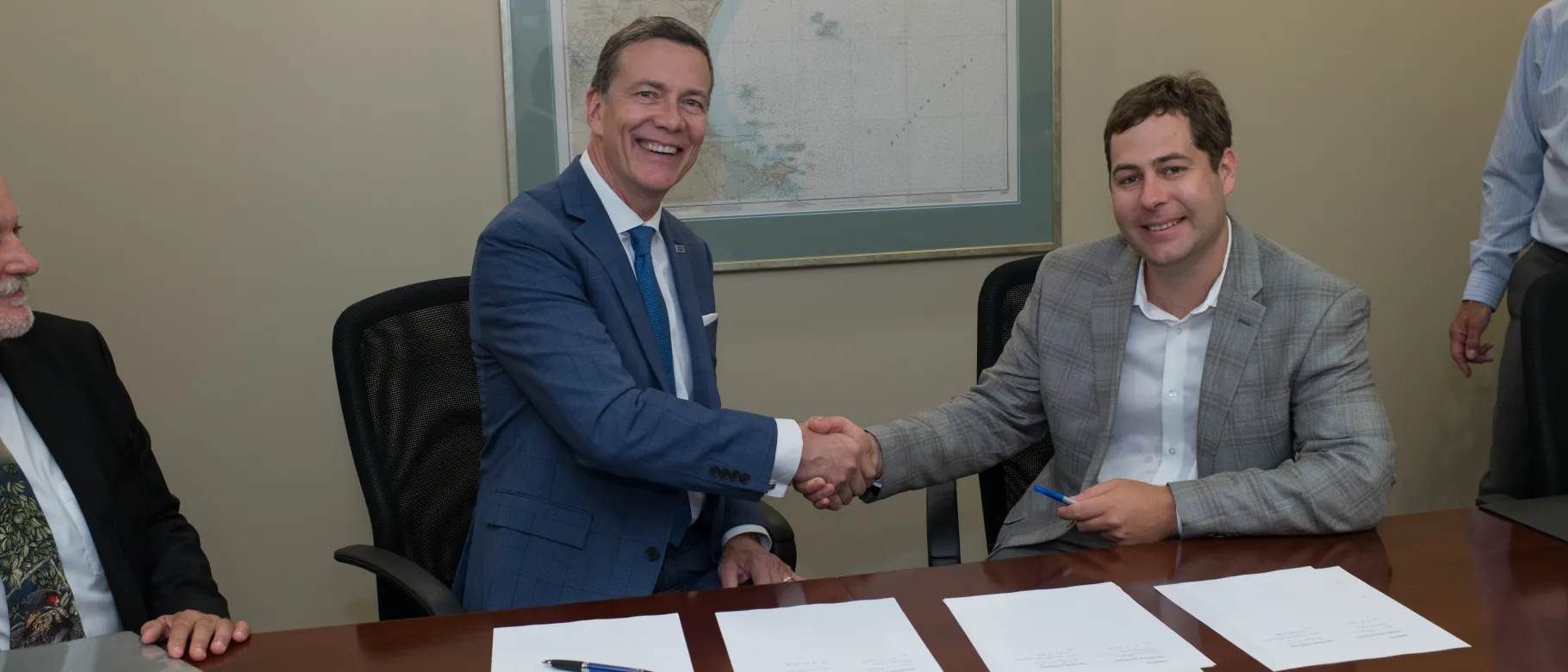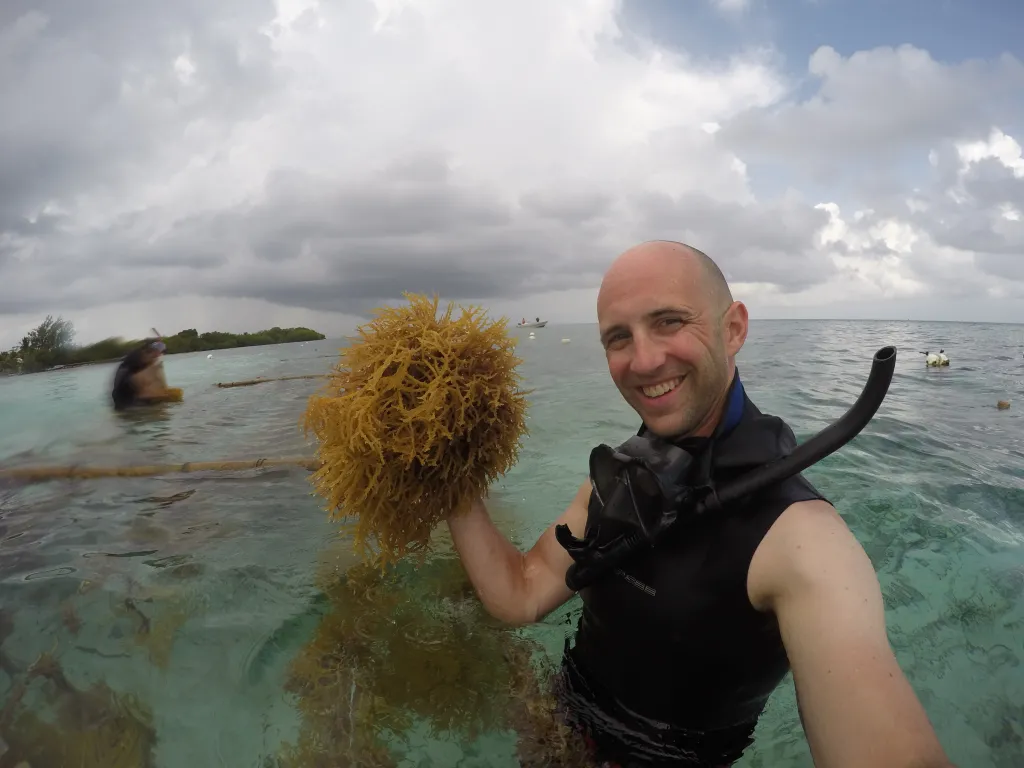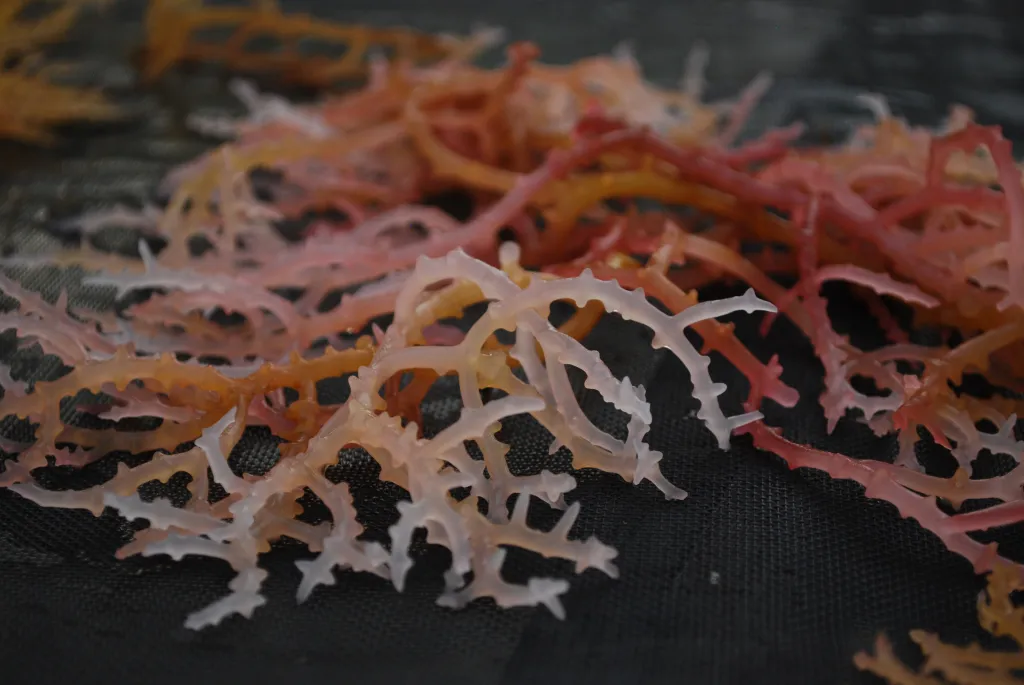UNE enters into global partnership agreement with The Nature Conservancy

Students at the University of New England will have the opportunity to work on aquaculture research on a global level, thanks to a new agreement between UNE and The Nature Conservancy (TNC).
On Tuesday, July 17, UNE President James Herbert and TNC Global Lead for Aquaculture Robert Jones signed a partnership agreement for collaboration on aquaculture research projects around the world. The agreement affords UNE faculty and students the opportunity to engage with one of the largest non-governmental organizations on the planet, while pursuing a goal that is central to the missions of both UNE and TNC: sustainable, ecological aquaculture development.
“One of UNE’s greatest strengths is our ability to provide global educational and research experiences for both undergraduate and graduate students,” said President Herbert. “This agreement expands those opportunities and confirms UNE’s commitment to innovation for a healthier planet.”
UNE marine science researcher Adam St. Gelais traveled to Belize, where TNC is involved with seaweed aquaculture on a community scale in much the same way that UNE is developing the industry in Maine. Through this agreement, UNE and TNC will continue to collaborate not only in Belize but elsewhere to assess the social-ecological benefits of seaweed farms.
"We create opportunities for students to work in real world settings and support our global and on-the-ground work," said Jones. "Training the next generation to understand the importance of aquaculture in our food system and how to manage it sustainably is key to the health of our oceans.”
“This partnership will not only strengthen UNE’s external ties to aquaculture research and education but also the growth of aquaculture programming between UNE’s marine science programs and UNE NORTH, the new UNE Institute for North Atlantic Studies,” said UNE NORTH Executive Director Barry Costa-Pierce, Ph.D.
The common aim of TNC and UNE’s marine science programs – to support the development of aquaculture as a food source for the planet – will only be facilitated, said Costa-Pierce, by collaboration with UNE NORTH’s flagship program, a Professional Science Master’s degree in Ocean Food Systems. Scheduled to begin accepting students in the summer of 2019, the program will allow students from Maine and Iceland to examine the entire value chain of ocean foods in fisheries and aquaculture and their interactions with marine businesses, governance, law, management and policy. The program’s goal is to train the next generation of sustainability-minded leaders who will pioneer the sustainable development of North Atlantic/Arctic “farm to fork” and “port to plate” ocean food systems.
Read about it in the Journal Tribune and University Business.

